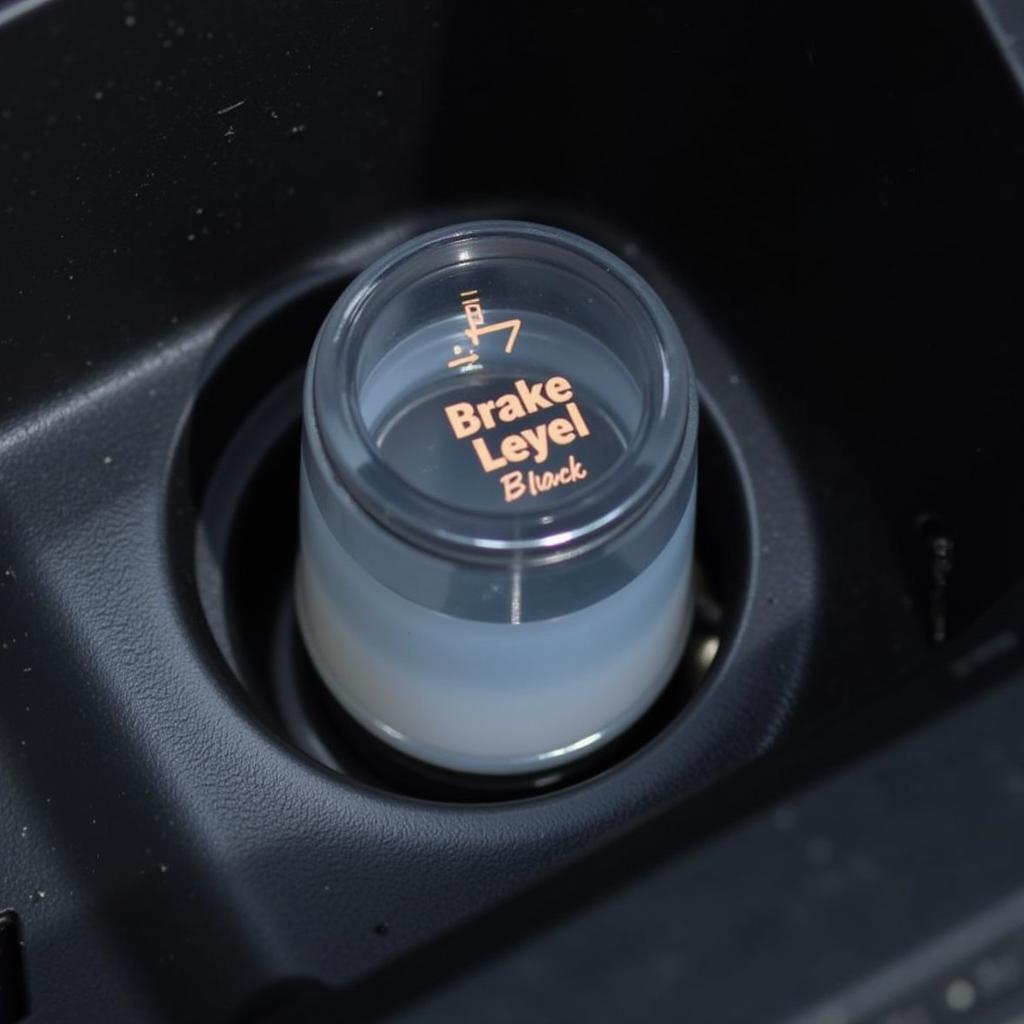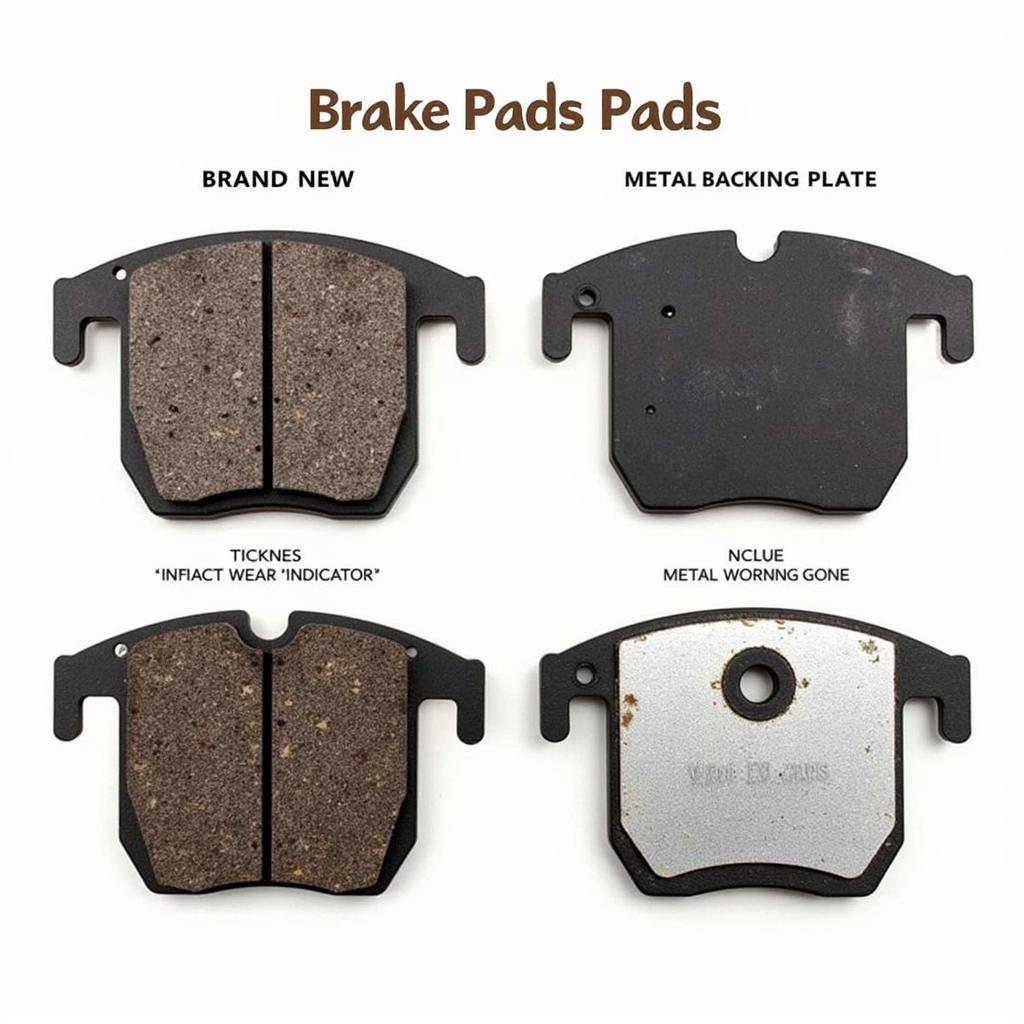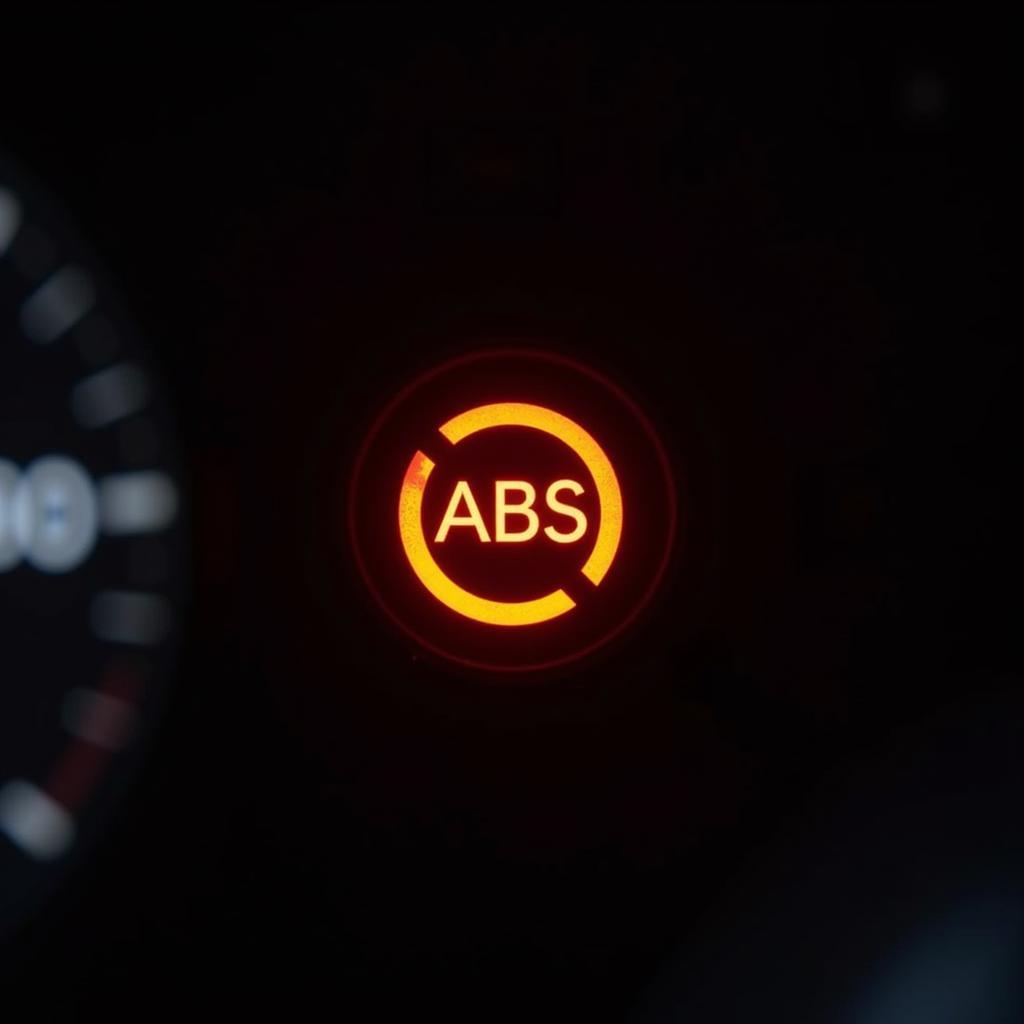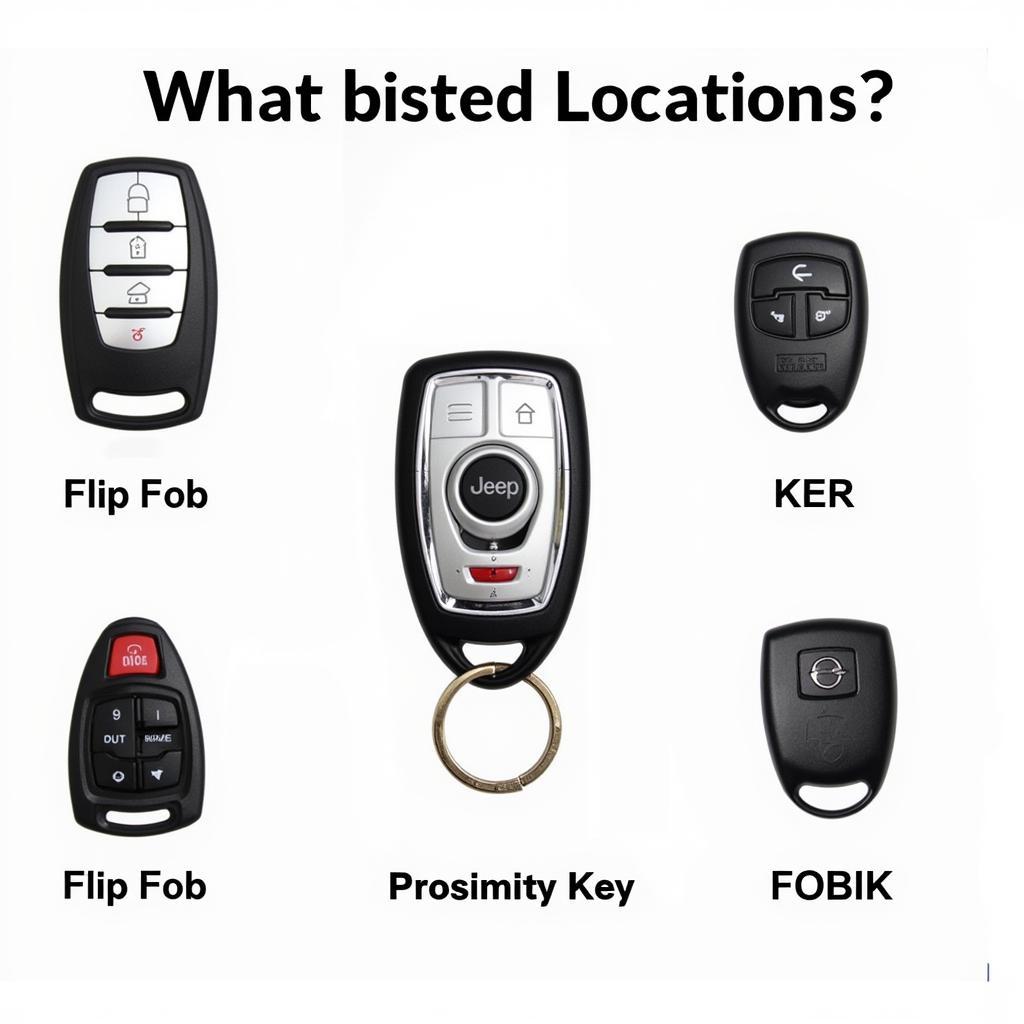A sudden illumination of the brake warning light on your dashboard can be alarming, but it’s crucial to understand it doesn’t always signify an immediate emergency. This light is your car’s way of communicating a potential issue with your braking system, which could range from a simple fix to a more serious problem. This article will delve into the common reasons behind a glowing brake warning light and provide insights into diagnosing and addressing the underlying issues.
Understanding Your Car’s Brake Warning System
Before we jump into the reasons, it’s helpful to understand how your car’s brake warning system works. This system primarily relies on sensors that monitor various components, including brake fluid level, parking brake engagement, and the overall functionality of the braking system. When any of these sensors detect an anomaly, the brake warning light on your dashboard will illuminate, alerting you to a potential problem.
Common Reasons Your Brake Warning Light Is On
There are several reasons why your brake warning light might turn on. Let’s explore some of the most common culprits:
1. Low Brake Fluid Level
 Car with low brake fluid level
Car with low brake fluid level
One of the most frequent reasons your brake warning light comes on is a low brake fluid level. Brake fluid is the lifeblood of your braking system, responsible for transmitting the force from your foot on the brake pedal to the brake pads, ultimately stopping the vehicle. If there’s a leak in the system, the fluid level drops, compromising braking performance.
What to do: Check your brake fluid level immediately. If it’s low, adding brake fluid might temporarily solve the problem, but it’s crucial to have your braking system inspected for leaks by a qualified mechanic.
2. Worn Brake Pads
 Comparison of new and worn brake pads
Comparison of new and worn brake pads
Brake pads are designed to wear down over time. Most vehicles have sensors in the brake pads that trigger the warning light when the pads reach a certain level of wear. Ignoring this warning can lead to costly damage to the rotors and calipers.
What to do: If your brake pads are worn, it’s crucial to replace them as soon as possible. Driving with worn brake pads significantly reduces your braking power and can be dangerous.
3. Faulty Brake Sensor
Like any other sensor, your brake sensor can malfunction. A faulty sensor might send a false signal to the car’s computer, causing the brake warning light to come on even if there’s no actual problem with the braking system.
What to do: If you suspect a faulty brake sensor, it’s best to take your car to a mechanic specializing in automotive electrical systems, like the experts at Car Diag Tech. We can accurately diagnose the issue using advanced diagnostic tools.
4. Issues with the ABS System
 Dashboard with ABS warning light illuminated
Dashboard with ABS warning light illuminated
Modern cars are equipped with an Anti-lock Braking System (ABS) that prevents the wheels from locking up during hard braking. The ABS system has its own set of sensors and control modules. If any of these components malfunction, it can trigger the brake warning light.
What to do: Diagnosing ABS issues requires specialized equipment. If you suspect a problem with your ABS system, seek professional assistance from a qualified mechanic specializing in automotive electrical systems.
Brake Warning Light Comes on When Accelerating
While the brake warning light typically illuminates when braking, it can sometimes come on when accelerating. This unusual behavior could indicate a more complex underlying issue, such as:
- Sticking caliper: A sticking brake caliper can create friction and heat, potentially triggering the warning light during acceleration.
- Failing brake master cylinder: The brake master cylinder is responsible for distributing brake fluid. If it’s failing, it might not release pressure properly, leading to the warning light illuminating during acceleration.
- Wiring issues: Damaged or corroded wiring related to the braking system can cause erratic behavior, including the warning light coming on when accelerating.
What to do: If your brake warning light comes on when accelerating, it’s essential to have your vehicle inspected by a professional mechanic immediately.
What is the Prius Brake Warning Light?
Toyota Prius, like other hybrid vehicles, has a unique braking system that combines traditional hydraulic brakes with regenerative braking. The Prius brake warning light serves the same purpose as in conventional vehicles – to alert the driver of potential issues with the braking system.
what is prius brake warning light
However, the Prius brake warning light can also be triggered by problems specific to its hybrid system, such as:
- Issues with the regenerative braking system: If the regenerative braking system, which captures energy during braking to recharge the battery, malfunctions, it can trigger the warning light.
- Problems with the brake actuator: The brake actuator in a Prius is an electronic component that controls the braking force. A malfunctioning brake actuator can also cause the warning light to illuminate.
What to do: Due to the complexity of the Prius braking system, it’s recommended to seek professional help from a mechanic specializing in hybrid vehicles for any brake warning light issues.
Brake Warning Light Cold Weather
Have you noticed your brake warning light tends to flicker or stay on more often during colder months? While a persistent issue needs professional attention, temporary cold-weather glitches can occur.
brake warning light cold weather
Here’s why:
- Moisture condensation: Cold temperatures can cause condensation to form within the braking system, potentially affecting sensor readings and triggering the warning light.
- Thickened brake fluid: Brake fluid can thicken slightly in cold weather, impacting its flow and potentially leading to a false warning light.
- Battery weakness: Cold weather can weaken your car’s battery, and since the brake warning light is part of the electrical system, a weak battery can sometimes cause it to flicker or illuminate.
What to do: If the brake warning light comes on intermittently in cold weather and goes away after the car warms up, it might not be a major concern. However, it’s still best to have your braking system checked by a professional for peace of mind.
Don’t Ignore the Warning
“[Ignoring a brake warning light is like ignoring a flashing ‘check engine’ light on an airplane engine – you wouldn’t do it, would you?” – John Smith, Senior Automotive Technician at Car Diag Tech
No matter the cause, a glowing brake warning light should never be ignored. Addressing the underlying problem promptly ensures your safety and prevents costly repairs down the road.
Conclusion
A glowing brake warning light signals a potential issue with your vehicle’s braking system. While a low brake fluid level or worn brake pads might be the culprit, more complex problems with the ABS system or electrical components could also be at play.
why does brake warning light come on, car brake warning light, brake warning light comes on when accelerating
If your brake warning light is illuminated, it’s crucial to diagnose and address the underlying issue promptly to ensure your safety and prevent further damage to your vehicle. At Car Diag Tech, we specialize in diagnosing and repairing even the most complex car problems, ensuring your vehicle is always in top condition. Contact us today for expert automotive electrical system diagnosis and repair!


